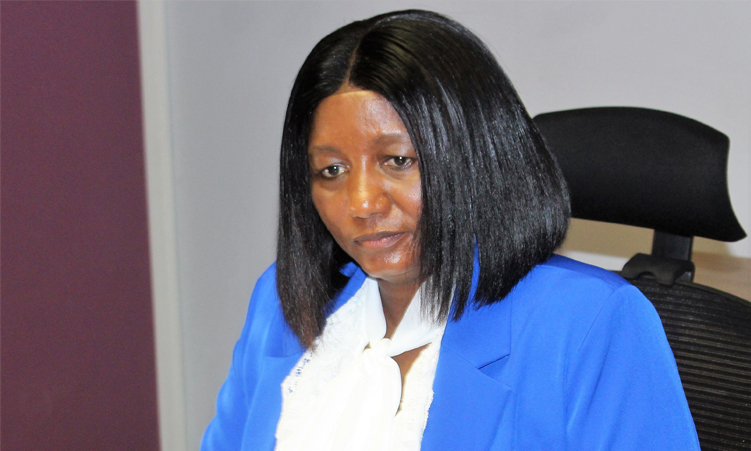Fisheries and marine resources executive director Annely Haiphene says it’s disheartening that the government’s well-intended efforts to re-employ former fisheries workers by awarding fishing quotas to certain companies is being viewed as a threat to other commercial companies that are not part of the programme.
The re-employment of 1 220 former fisheries workers is taking place under the Government Employment Redress Programme (Gerp), but is being viewed as the deprivation of fish quotas for commercial companies, said Haiphene during a press conference at Walvis Bay on Friday.
“The natural resources of Namibia belong to all Namibians, and no one should feel more entitled than anothers,” said Haiphene.
She said the Gerp aims to leverage fish resources for addressing social welfare, particularly in light of Namibia’s high unemployment rate, suggesting that while Namibia’s marine resources are rich and abundant, a significant segment of the population remained jobless, including those who lost work due to industrial action.
Haiphene said the Marine Resources Amendment Act, which states that “the state is entitled to utilise or harvest living aquatic marine resources to advance any socia-economic, cultural or other governmental objectives in the public interest”, allows the government to directly intervene in the allocation of marine resources to achieve specific socio-economic goals, like employment creation.
“It is on this basis that the government heeded the call of citizens affected by industrial action, and some other factors,” she said.
The programme came as a partnership between the Ministry of Fisheries and Marine Resources and the Ministry of Labour, Industrial Relations, and Employment Creation.
She said the ministry engages in dialogue with interested and affected parties, including labour unions and fishing associations, regarding such matters.
Haiphene spoke about the ministry’s scorecard system, a quota allocation mechanism initiated in 2015. The system aims to provide the government and the fishing industry with a “transparent, predictable, and stable” means of quota allocation.
She said it will assist the fishing sector in planning their operations better and making sound investment decisions, as well as ensure quota allocations are transparent and sustainable.
This scorecard aims to address socio-economic concerns, such as unemployment, as it allows for more consistent and fair distribution of resources, which in turn will help commercial companies secure their operations and safeguard jobs.
“We acknowledge that the process has taken too long to be finalised owing to its complexities,” she said, however, the ministry has prioritised the finalisation and implementation of the scorecard in the current financial year.
Confederation of Namibian Fishing Associations chairman Matti Amukwa, however, expressed concern over the governmental quotas.
He said the programme, despite its merits, operates outside the established quota systems, creating an imbalance in the sector.
Commercial fishing companies rely on a certain quota allocation to plan their business activities. If the government starts reallocating significant quotas for social programmes like Gerp, these companies could face reduced availability of quotas, potentially affecting their production and profitability.
Amukwa said this transition risks “shifting from rights-based management to vessel operator-based management”.
He said the situation is “creating a parallel quota industry of vessel operators who are sustained by governmental quotas and hence no longer need to work with rights holders, since this new quota has no obligations”.
This could result in an unfair competitive advantage for those vessel operators, thereby undermining the core principles of equitable quota allocation.
Ironically, while the programme aims to create jobs, it could result in job losses within commercial companies that face reduced quotas. These companies might have to downsize operations, leading to a loss of jobs and decreased value addition.
“Instead of this being a random situation under emergencies, it has become routine,” Amukwa said, criticising the government for becoming the “largest quota holder, without the obligations on quotas that are placed on rights holders”.



Leave a Reply